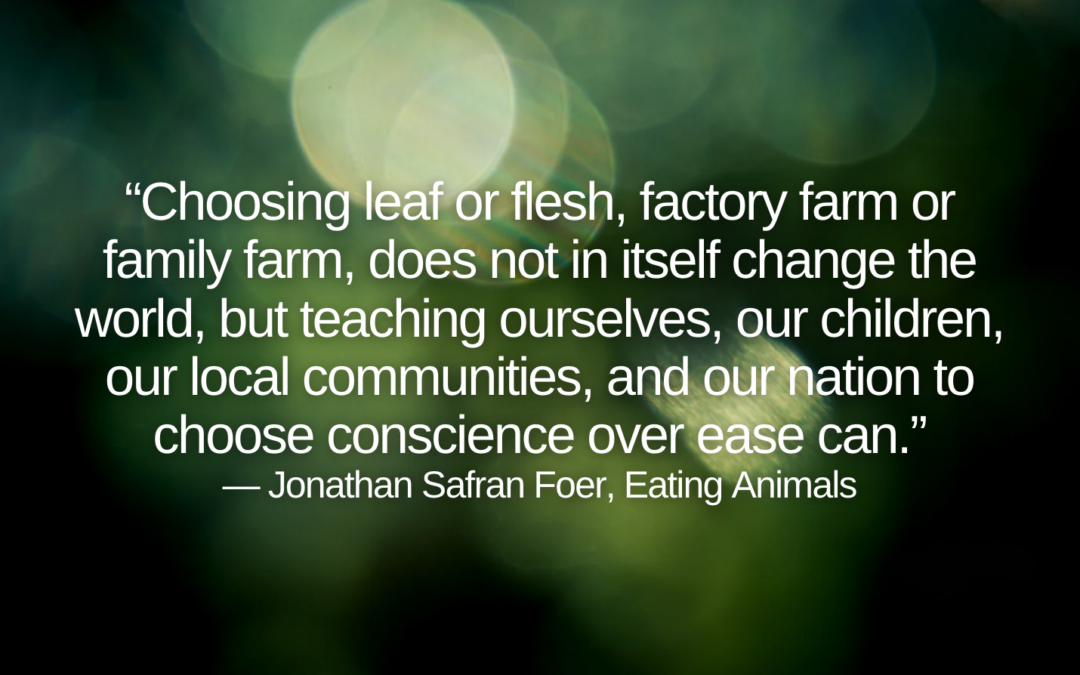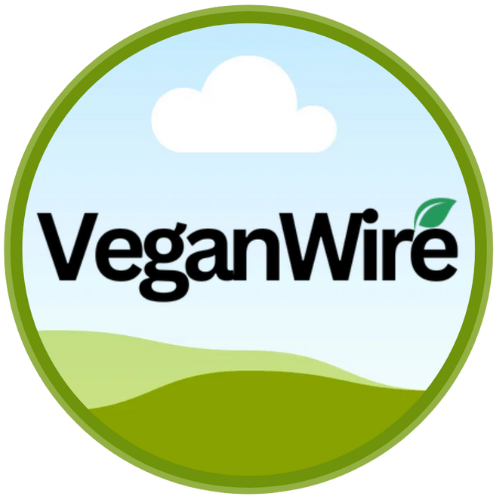“Eating Animals” is a book written by Jonathan Safran Foer that explores the ethical, environmental, and personal consequences of consuming animal products. Foer delves into the history of animal agriculture and its evolution into the factory farming system that dominates today, examining the various ways in which animals are raised and slaughtered for food. He also examines the environmental impacts of animal agriculture, including water pollution, deforestation, and greenhouse gas emissions.
Throughout the book, Foer presents a compelling argument for reducing or eliminating animal products from our diets. He cites research showing that plant-based diets can be nutritionally adequate and may even have health benefits, such as reducing the risk of heart disease and certain cancers. He also discusses the ethical implications of factory farming, including the inhumane treatment of animals, the negative impact on small farmers, and the potential health risks to consumers.
One of the main arguments Foer makes is that our current food system is not sustainable. He points out that the demand for animal products is increasing as the global population grows, but the resources required to produce these products, such as water and land, are limited. He also argues that factory farming is inefficient, with a significant portion of the food produced being used to feed the animals rather than feeding people directly.
Foer also discusses the environmental impacts of animal agriculture, including water pollution, deforestation, and greenhouse gas emissions. He cites research showing that animal agriculture is a major contributor to climate change, with livestock responsible for 14.5% of global greenhouse gas emissions. He also points out that animal agriculture is a leading cause of water pollution, with factory farms producing vast amounts of animal waste that can contaminate water sources.
In addition to the environmental and ethical concerns, Foer also discusses the personal consequences of consuming animal products. He cites research linking animal products to an increased risk of certain health problems, such as heart disease and certain types of cancer. He also discusses the emotional toll of eating animals, arguing that many people are unaware of the conditions under which animals are raised and slaughtered for food.
Overall, “Eating Animals” presents a thought-provoking and compelling argument for reducing or eliminating animal products from our diets. Foer makes a strong case for the ethical, environmental, and personal consequences of consuming animal products and provides a nuanced examination of the complex issues surrounding factory farming.
Citations:
- Foer, Jonathan Safran. Eating Animals. New York: Little, Brown and Company, 2009.
- “Livestock’s Long Shadow: Environmental Issues and Options.” Food and Agriculture Organization of the United Nations, 2006.
- “Dietary Reference Intakes for Energy, Carbohydrate, Fiber, Fat, Fatty Acids, Cholesterol, Protein, and Amino Acids.” Institute of Medicine, 2005.
- “Red and Processed Meat Consumption and Risk of Incident Coronary Heart Disease, Stroke, and Diabetes Mellitus: A Systematic Review and Meta-Analysis.” Circulation, 2010.
- “Meat Consumption and Cancer: A Review.” Nutrition and Cancer, 2002.
- Some research for this article was compiled with the assistance of ChatGPT/OpenAI







